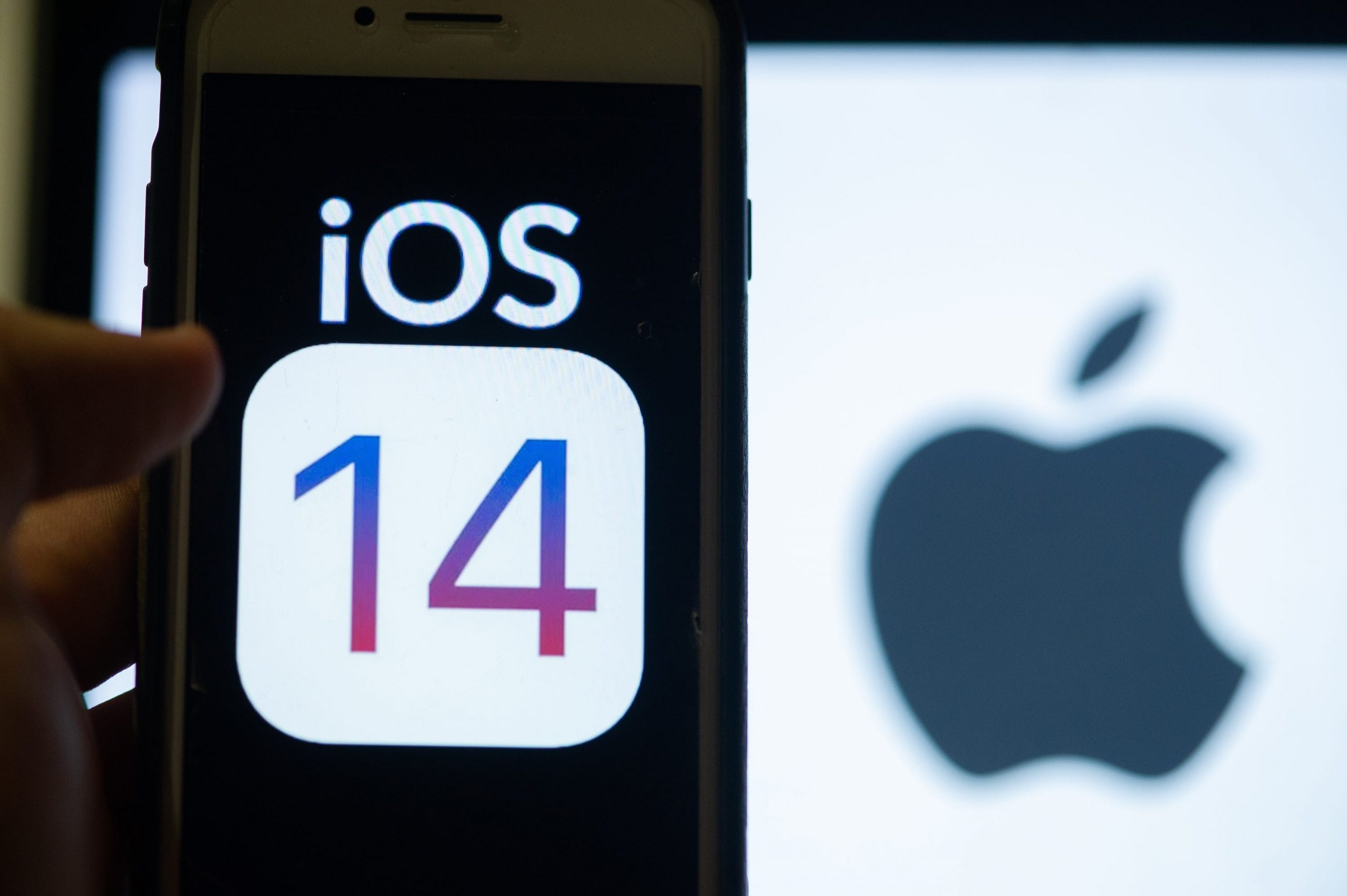
- App Tracking Transparency is one of the core new features in Apple's iOS 14.5 software update.
- App developers now need to serve users a pop-up asking for permission in order to track them.
- Some users' settings have prevented them from seeing any pop-ups. Here's how to change that.
- See more stories on Insider's business page.
Apple's iOS 14.5 update began rolling out earlier this week, featuring a bunch of new features, from emoji to new voices on Siri.
Arguably the most significant update is the introduction of Apple's "App Tracking Transparency," or ATT, feature, which requires app developers to serve a pop-up explicitly asking users to opt-in to being tracked across other companies' apps and websites.
However, some users are yet to see any permission pop-ups, despite updating to the latest version.
Mobile advertising experts suggested three possible reasons some users have yet to see them. Apple did not respond to requests for comment.
1. The "allow apps to request to track" privacy setting is toggled off
The simplest explanation for not yet seeing the pop-ups boils down to an option within a user's privacy settings.
To check if that's the case, users should head over to Settings, then scroll down to Privacy. They should then click on Tracking, where they'll see a screen that looks like the image below and can choose whether to toggle the "allow Apps to Request to Track" option on or off.
If the toggle is switched to "off," apps will be prevented from sharing that device's individual Identifier for Advertisers, or IDFA, with other apps and companies (unless the user has previously given permission for certain apps to track them.)
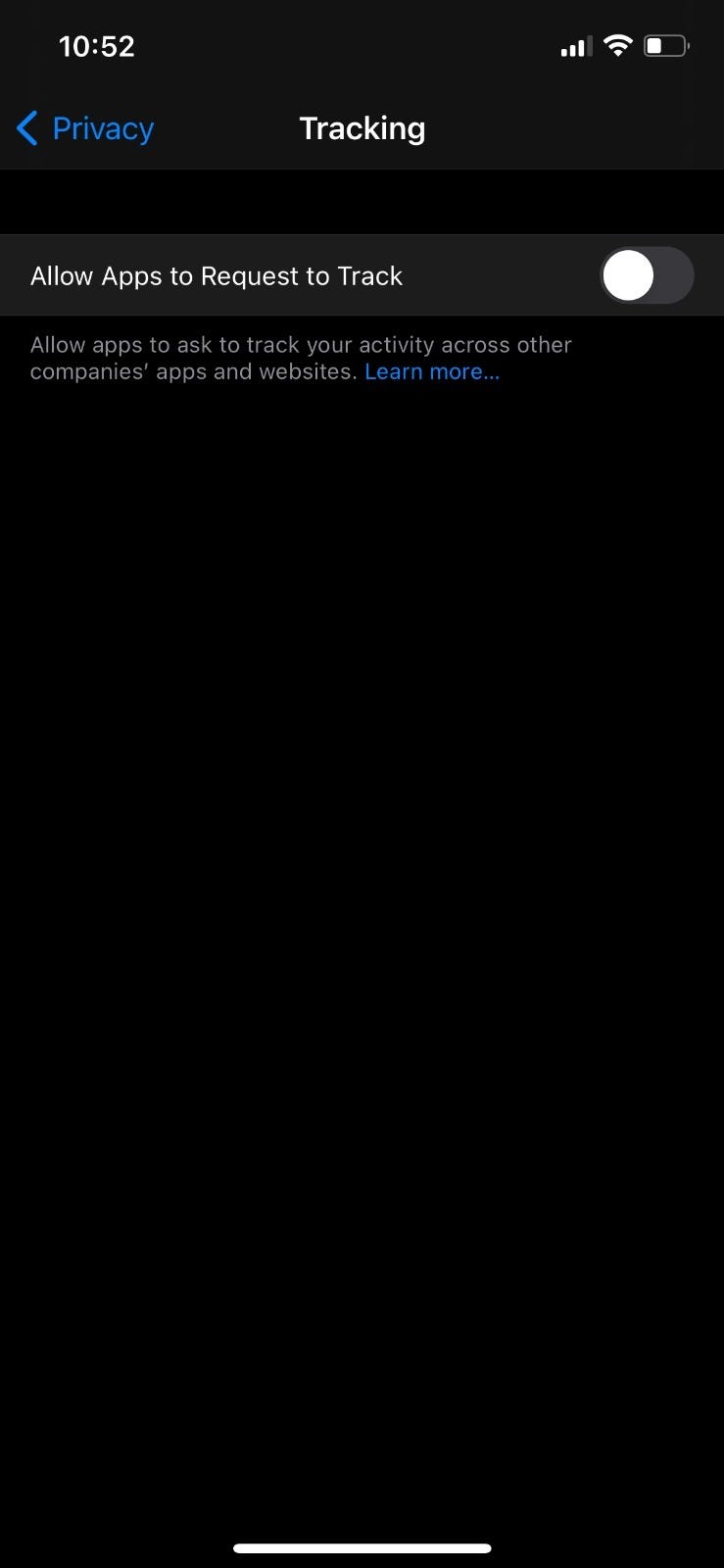
Simon Poulton, vice president of digital intelligence at digital marketing agency Wpromote, said it was most likely that users with this setting switched off were people who previously had "Limit Ad Tracking" switched on in previous versions of iOS. In his view, the two settings aren't the same thing, but are being treated as such by Apple.
The previous setting "was about ad tracking, obscuring the IDFA to mitigate ad tracking, but App Tracking Transparency is far broader and there are lots of factors here - I don't think you can make the case that opting out of that is the same thing," said Poulton. "It's another screw turning" for players in the mobile advertising market, he said.
2. Some users might not even have the option to toggle "allow apps to request to track" back on
Some users have reported that the "allow apps to request to track" option is grayed out, rendering them unable to opt-in to receiving the notifications, even if they wanted to.
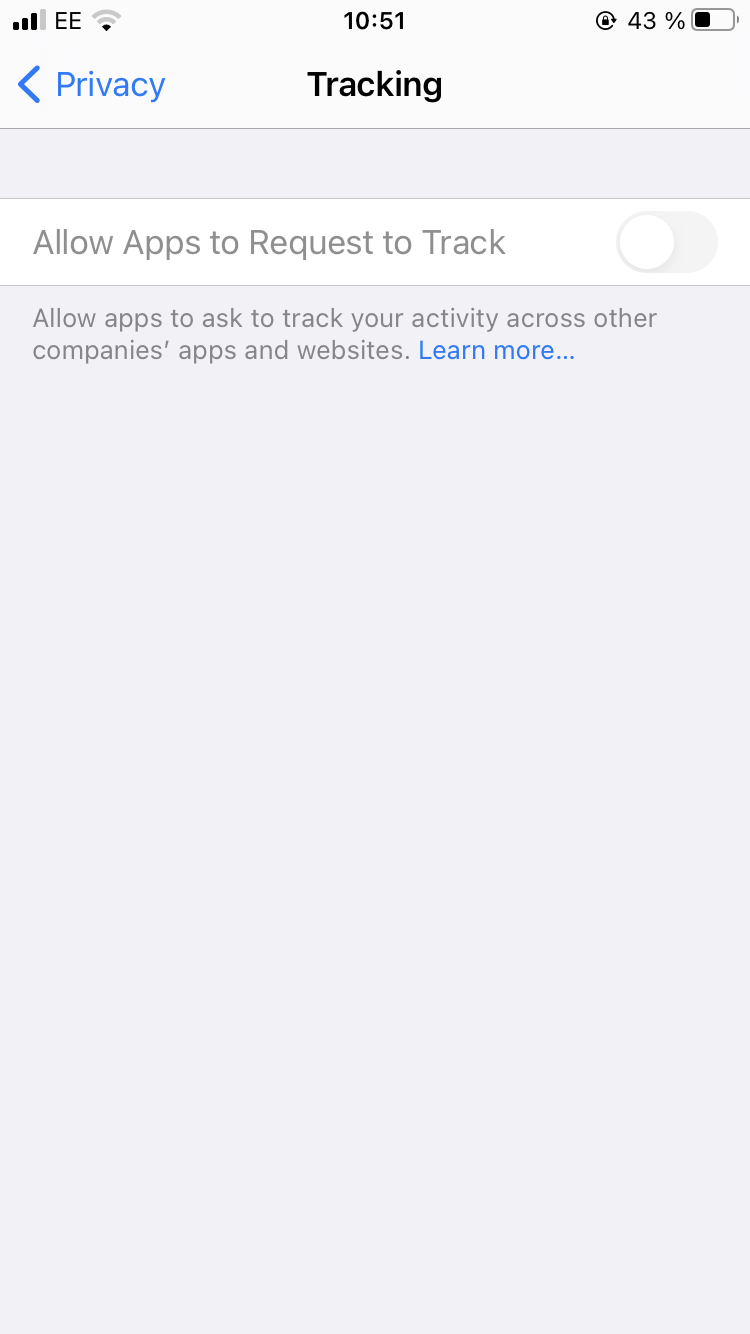
Apple says on its support page that this will affect users under age 18 - or devices with child accounts - that are signed into their Apple ID. The company says it'll also affect Apple IDs that are managed by an educational institution or other organization that limits tracking. Apple IDs created that have only just been created within the last three days would also be affected.
However, Insider found at least two instances of users who didn't fall into these categories but were unable to toggle the setting. Mobile measurement firm AppsFlyer noted in a blog post last year that some users have been able to reset the toggle by logging out of their iCloud accounts and logging back in again.
3. Some apps haven't rolled out the prompt yet
While many developers began serving the privacy pop-up when their app launches immediately after the iOS 14.5 update rolled out on Monday - and in some cases, earlier than that - others are waiting a little longer.
"Some brands have decided they will not show the ATT prompt on the first open," said Wpromote's Poulton. "You just get one shot," to show the user the pop-up, he added, and some developers are deciding to wait and see how things shake out before proceeding. That does mean, however, those apps will not be able to access user IDFAs in the interim.
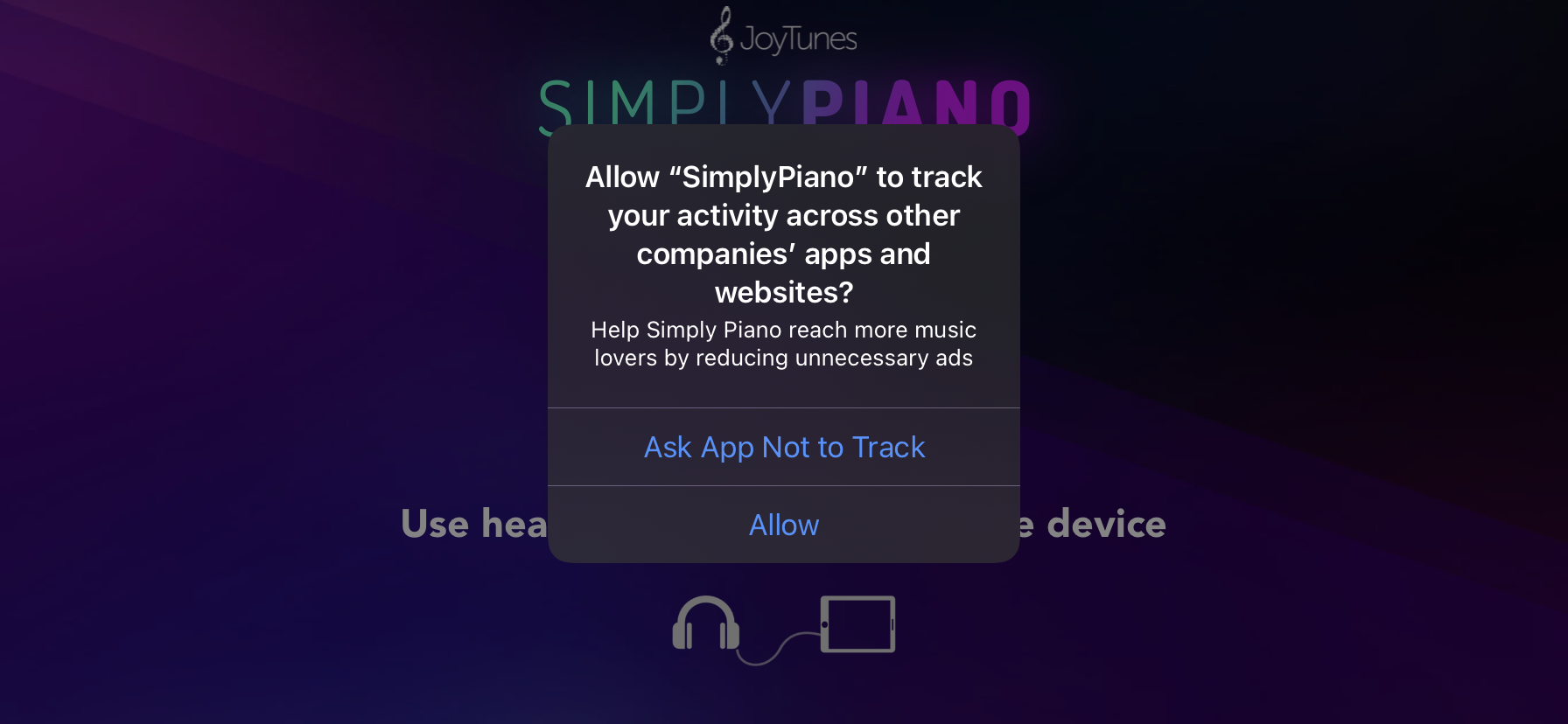
"After I installed iOS 14.5, I was surprised how few applications presented me with a popup," said Aaron McKee, chief technology officer of location-focused adtech company Blis, which helps advertisers target consumers. "I didn't see one in Twitter, Facebook, Reddit, Snap, LinkedIn, Uber, Uber Eats, Deliveroo, TripAdvisor, or almost any other game or utility app I could find on my phone."
McKee said that on April 29, 30% of iOS 14.5 bid requests across Blis' network arrived with an IDFA present, meaning that this percentage of users had opted into tracking. But for the previous version of iOS, 89% had an IDFA attached.
"Some users understand the value exchange that exists between apps and publishers - sharing a bit of (mostly pseudo-anonymous) data means that apps can continue to provide free content," McKee said. "It also appears that a significant cross-section don't want to be part of that value exchange and advertising and adtech companies should ensure they have a future-proofed, privacy-first approach to reaching their audiences."
4. Bonus: Users can also check whether they're opted in to receiving 'personalized ads' on Apple's services
Nestled at the bottom of iOS 14.5's privacy settings is a page devoted to "Apple Advertising," where users can choose whether or not Apple can serve "personalized ads" to them on the App Store, Apple News, and the Stocks app. Apple is preparing the launch of a new ad format within the App Store that will suggest apps users might like to download.
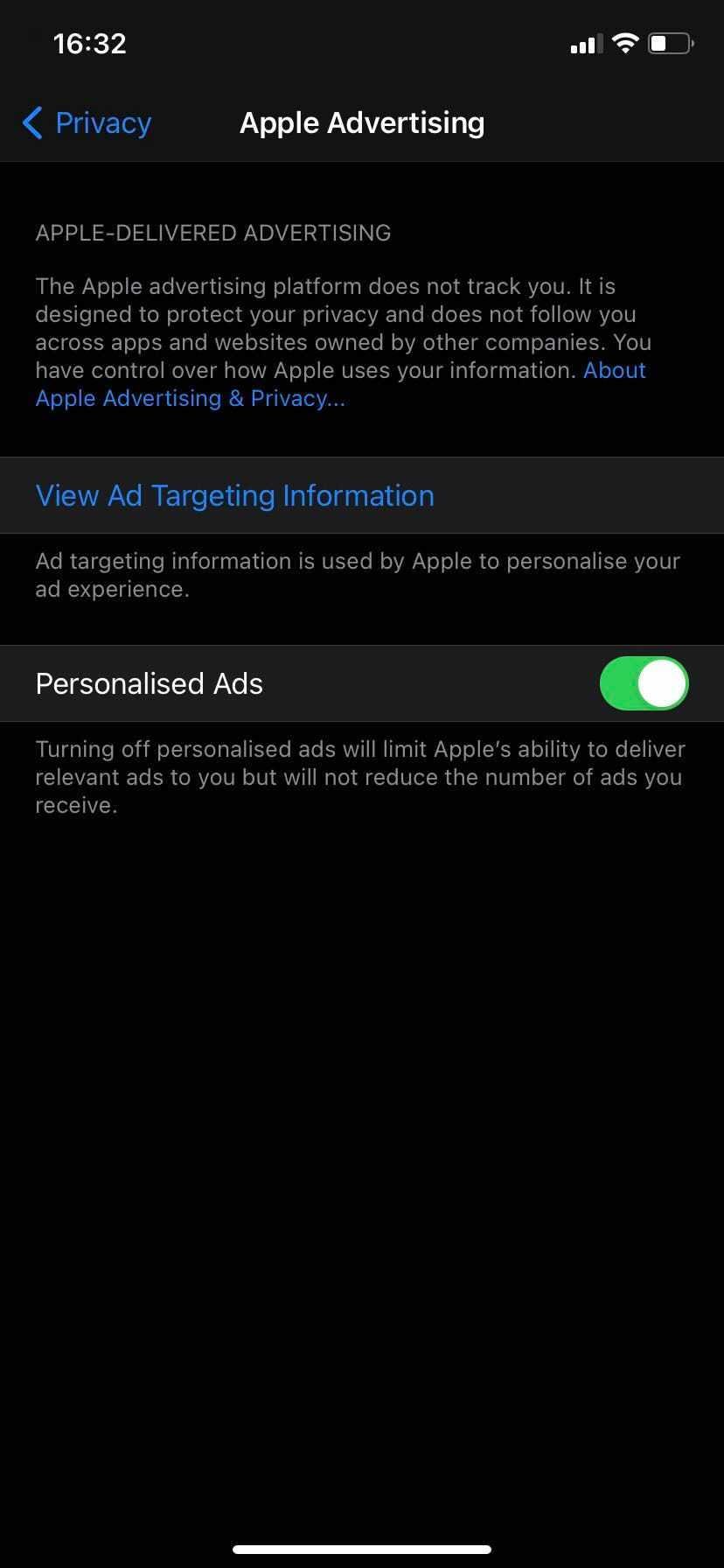
Apple has said that it does not "track" users and that its own apps don't share information for advertising purposes with other apps and companies. However, the fact that Apple's setting works on an opt-out basis and appears in a separate menu has been a bone of contention among members of the mobile advertising community.
"It's certainly something the mobile ad industry isn't impressed with.," said Shumel Lais, CEO of analytics platform Appsumer. "But, ultimately, Apple can get away with it as it can serve personalized ads using its own attribution solution without having to expose user identifiers to advertisers."
